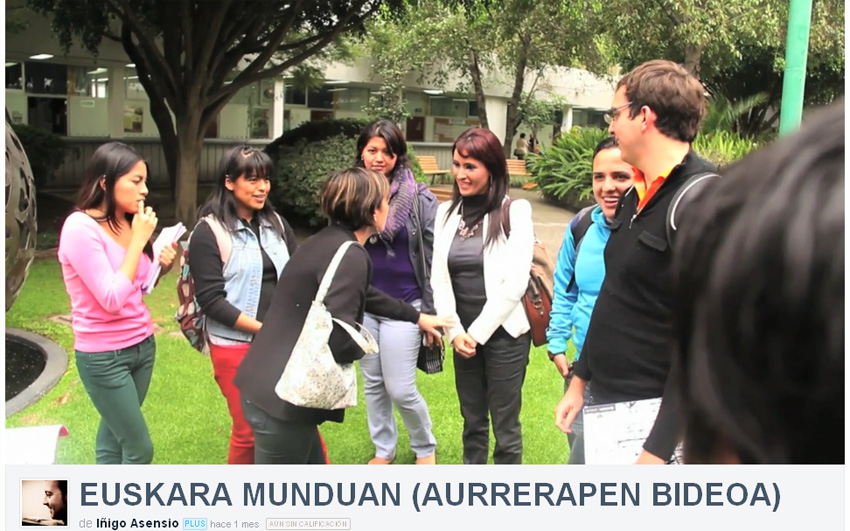Director, Iñigo Asensio, has traveled through 12 countries and has interviewed Basques who live far from the Basque Country and who barley have an opportunity to speak Basque in their daily lives for his documentary Euskara Munduan. Analyzing their relationship with the language, and what it means to them was his goal. “I realized that it is something carried inside, that connects us to our identity,” he says. From Ethiopia to Guatemala I have gathered dozens of testimonies that can be seen on ETB on December 3, as part of the International Day of Euskera. Here is the trailer of the project.
Donostia-San Sebastian. Director, Iñigo Asensio, is now working in Donostia on putting his documentary together. It is a project that he carried out in a dozen countries interviewing Basques living there, many times isolated from other Basques. “I like to travel a lot and I realized some time ago that there were many Basque speakers throughout the world. I realized that they had a story to tell, that nobody had concentrated on the presence of Euskera in the world,” he explains.
Asensio traveled through twelve countries: Mexico (Mexico City and Valles), Guatemala (La Antigua), US (California), Ethiopia (Wukro), Turkey (Istanbul), Germany (Berlin), Hong Kong, India (Dabardipa), Japan (Osaka and Tokyo), Philippines (Cebu), Australia (Sydney) and Italy (Rome), interviewing a handful of Basques. “Some get together with other Basques because speaking Basque is a way to alleviate the nostalgia, but others don’t have anyone to do that with. There was one example of a missionary that had been in India for 20 years, Ignacio Galdos, and Father Angel Olaran, in Ethiopia. There, Ethiopian children learn Basque words, because they know that Euskera is his language,” he says. “In some cases I spent a couple of days with them, speaking, so that they could get some release. But then again, Basque remains deep inside all of them.”
Basque, according to the director, is a way to get back to their roots, to their childhood, and is deeply connected to their identity. In Mexico, Basque teacher Gurutzne Etxeberria told him that one of her students started to study Basque to be able to speak to her grandmother that suffers from Alzheimer’s, and had begun to only speak in Basque.
“I also remember a woman I interviewed in Australia, where she has lived for many years. She said that more and more she longs to go back to the Basque Country. “Because when I’m older, I’ll forget everything, even English and so what will be left? Neure berbi' she told me, my language, in Bizkaitarra,” Asensio said.
The documentary was produced with the support of ETB and will debut on December 3, as part of the International Day of Euskera clebration. Here is the trailer:
EUSKARA MUNDUAN (AURRERAPEN BIDEOA) from Iñigo Asensio on Vimeo.






 Send to a friend
Send to a friend Add comment
Add comment








